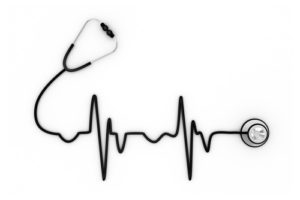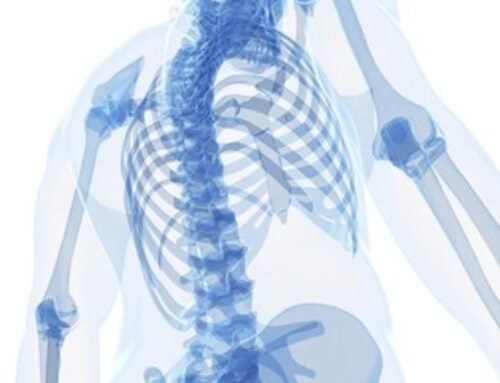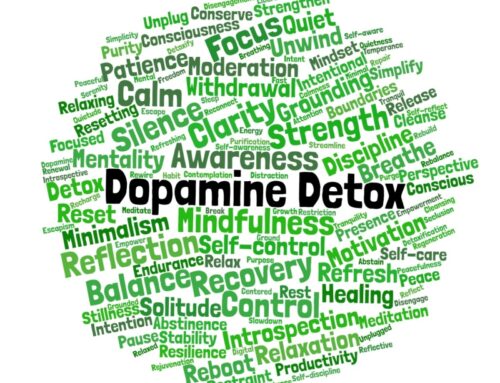Stress, fat, and sleep. If you are an American living in our current culture, then these are three things that you have probably thought about and perhaps even struggled with at times in your life. When asked about what health concerns that patients in our society struggle with the most, these three things are often on the top of the list. Why are these issues so prevalent in our society? Is there anything that can really be done to improve these three areas of life? Read below to find out.
The Causes of HPA Axis Dysfunction
Our body regulates stress, fat production, and sleep patterns by an interrelated hormonal cascade known as the HPA axis. The Hypothalamic-pituitary-adrenal axis is made up of several hormone producing organs and regulated by receptors in the body and synapses in the brain. When this hormonal network begins to struggle, it is often termed, HPA axis dysfunction or more commonly ‘Adrenal Fatigue.’
HPA axis dysfunction is caused by the body’s attempt to adapt to chronically high cortisol. This adaptation eventually will lead to a state of low cortisol production. When we’re exposed to stress over a long period of time, the body has some mechanisms to protect us from the effects that high cortisol would produce as a result of that stress. Unfortunately, that ends up leading to a decreased ability to produce cortisol in the face of future stress.
So what causes HPA axis dysfunction? There are four main causes of this dysfunction that bring about the many health conditions surrounding stress, fat, and sleep problems.
Perceived Stress
We are all familiar with financial stress, job stress, relationship stress, and the other major stressors of living. Perceived stress is an important term because it highlights the fact that people perceive stress in different ways. Something that is stressful for one person may not be stressful for another. Most people, when they think of adrenal fatigue, think of stress as being the major cause, and it’s true that it is a major cause. But, while we lack control of the causes of perceived stress, we also tend to neglect the next three causes that we have a better ability to control and are just as significant.
Inflammation Creates Dysfunction
Anything that causes inflammation will create dysfunction with the HPA axis. The major source of systemic inflammation is from the dietary intake of pro-inflammatory foods. We have discussed this many times in our articles but know that these foods are mostly the man-made foods that are found to make up the majority of the typical American diet. These foods can lead to gut problems like SIBO, IBS, and Crohn’s disease. They are also the number one cause of obesity in America. For more information on this topic, check out our series of articles titled “Are you inflamed?” Click here for the first article.
High blood sugar or low blood sugar will also trigger HPA dysfunction. The highs and lows of blood sugar will cause problems with insulin and leptin signaling. Leptin signaling disruption alters the signals that are sent to the brain to tell us we are full and satisfied after eating. Dysfunction of the HPA axis will cause us to want to eat more, feel less satisfied, and gain fat quickly. Unfortunately, this has a compounding effect as the weight gain and subsequent obesity creates more inflammation, further disrupting the HPA axis. If you want more information on how this process occurs, check out our series of articles titled “Why do I eat so much?” Click here for the first article.
Circadian Disruption
Circadian disruption refers to not getting enough exposure to light at the correct time of day. This occurs most often in the morning when many of us do not get enough sunlight. Likewise, many of us get too much exposure to light in the evenings and at night. This causes an alteration in our body’s production of melatonin, which is needed for deep, restful sleep.
New studies have led scientists to conclude that sleep is less for the body’s sake and more for the brain. Sleep detoxifies the brain, purging it of free radicals, preserving the brain from atrophy and decay, like that found in dementia, Parkinson’s, and Alzheimer’s disease. Researchers have also concluded that a decrease in sleep can lead to a slowdown of your body’s metabolism. It turns out that Leptin, see above, is produced during sleep. Therefore, if you don’t get enough sleep, your brain will tell the body to store fat.
How to Treat HPA-D
Hopefully, that’s obvious now because you know what the four triggers are. Addressing those four triggers is the primary way of reversing HPA axis disruption.
Reducing perceived stress is more about reducing our exposure to stress when that’s possible and then taking steps to manage stress when it’s not. If a patient comes to me and they have significant HPA axis disruption, what I tell them is there is no way to supplement or eat yourself out of this alone. Those things are really important, but you really, really have to address the stress piece, the behavioral and lifestyle management part of it, or else you won’t get well. This may include bringing in other healthcare and life coaches to counsel you in areas of great stress.
Reducing Inflammation
Number two would be to address root causes of inflammation. Again, if you have gut dysbiosis, SIBO, parasites or fungal overgrowth, and that’s contributing to an inflammatory picture, then you must address that before the HPA axis will improve. Take a moment and watch our “Heal the Gut” class that we filmed a few years ago. You can find that class here.
Regulating Blood Sugar
Number three would be to regulate blood sugar. If your blood sugar is too high, taking steps to lower it by following a low carb Paleo-type of diet or even a keto diet can be helpful. Making a major dietary change can be difficult. You will make mistakes but keep improving your daily food choices and watch your body improve.
Training Your Circadian Rhythms
Circadian entrainment is the process of bringing yourself into alignment with the natural rhythm of light and dark. This process begins with making sure to get some light exposure first thing in the morning. If this is not possible, get some daylight sometime during the day. As the day progresses begin to reduce your exposure to artificial light to prepare your body for sleep. All those things are really important for reducing circadian disruption that can cause HPA axis problems.
A few other helpful hints from previous articles we have shared on sleep:
-
-
-
-
-
-
-
-
- Start resetting your internal clock by going to bed at the same time each night. Sometime between 9:00 and 10:30 is preferred.
- Perform a routine for one half hour before bed that will act to set the stage for sleep.
- A relaxing routine may include a shower, brushing your teeth, changing into your sleepwear, 10 grams of L-glutamine, and finally reading and/or praying for 10-15 minutes before turning out the light.
- Consider supplements and items that help with sleep. We carry several supplements that help with sleep loss (CBD, GABA, or Melatonin) as well as a selection of recommended pillows.
-
-
-
-
-
-
-
Improving your health is a major commitment. It takes a plan, guidance, accountability, hard work and a desire for something greater to come. You can find a library of helpful articles on improving your health on our blog as it is our desire to help patients on this journey. Our mission is to enable you to become healthier than you have ever been.

Daryl C. Rich, D.C., C.S.C.S.








